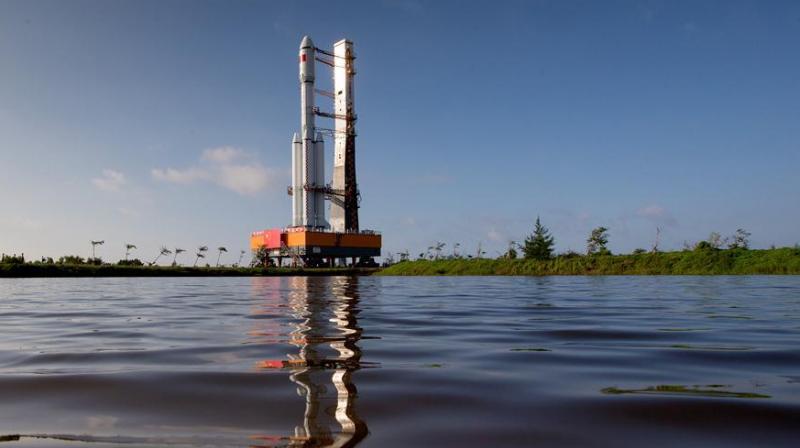China launches first cargo spacecraft as part of space station goal
President Xi Jinping has prioritised advancing China's space programme to strengthen national security

China launched its first cargo spacecraft on Thursday, taking another step towards its goal of establishing a permanently manned space station by 2022.
President Xi Jinping has prioritised advancing China's space programme to strengthen national security.
The Tianzhou-1 cargo resupply spacecraft lifted off early evening on a Long March-7 Y2 rocket from the Wenchang Satellite Launch Centre in the southern island province of Hainan.
State television broadcast the launch live.
The spacecraft is designed to dock with the Tiangong 2 space laboratory, or "Heavenly Palace 2", where two astronauts spent a month last October in China's longest ever manned space mission.
The cargo spacecraft mission will provide an "important technological basis" for the construction of China's space station, according to state media.
The spacecraft can carry 6 tonnes of goods, 2 tonnes of fuel and can fly unmanned for three months, state media said.
Despite the advances in its space programme for military, commercial and scientific purposes, China still lags behind the United States and Russia.
In late 2013, China's Jade Rabbit rover landed on the Moon to great national fanfare, but ran into severe technical difficulties.
The U.S. Defense Department has highlighted China's increasing space capabilities, saying it was pursuing activities aimed at preventing other nations from using space-based assets in a crisis.
China insists it has only peaceful ambitions in space, but has tested anti-satellite missiles.

